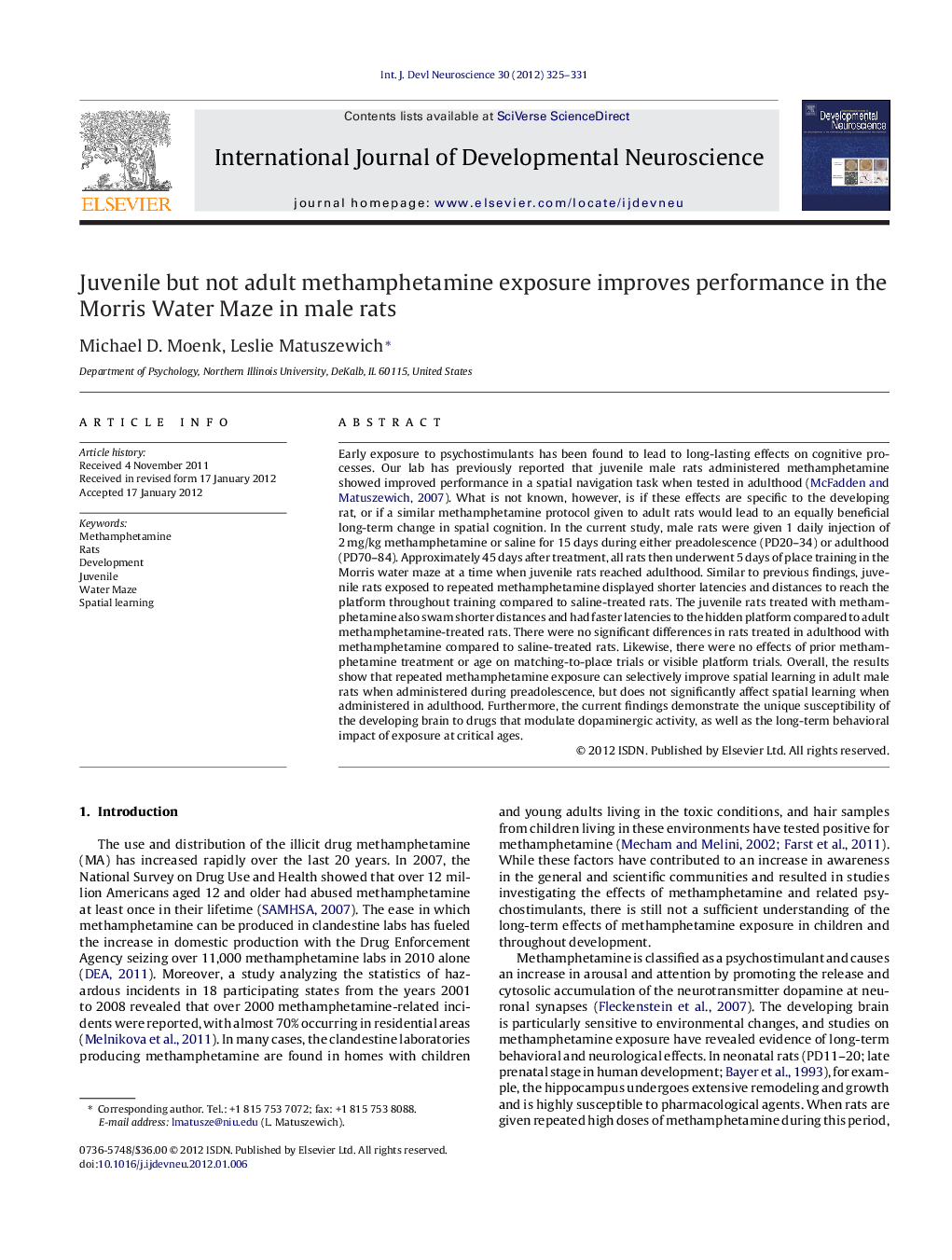| Article ID | Journal | Published Year | Pages | File Type |
|---|---|---|---|---|
| 2786268 | International Journal of Developmental Neuroscience | 2012 | 7 Pages |
Early exposure to psychostimulants has been found to lead to long-lasting effects on cognitive processes. Our lab has previously reported that juvenile male rats administered methamphetamine showed improved performance in a spatial navigation task when tested in adulthood (McFadden and Matuszewich, 2007). What is not known, however, is if these effects are specific to the developing rat, or if a similar methamphetamine protocol given to adult rats would lead to an equally beneficial long-term change in spatial cognition. In the current study, male rats were given 1 daily injection of 2 mg/kg methamphetamine or saline for 15 days during either preadolescence (PD20–34) or adulthood (PD70–84). Approximately 45 days after treatment, all rats then underwent 5 days of place training in the Morris water maze at a time when juvenile rats reached adulthood. Similar to previous findings, juvenile rats exposed to repeated methamphetamine displayed shorter latencies and distances to reach the platform throughout training compared to saline-treated rats. The juvenile rats treated with methamphetamine also swam shorter distances and had faster latencies to the hidden platform compared to adult methamphetamine-treated rats. There were no significant differences in rats treated in adulthood with methamphetamine compared to saline-treated rats. Likewise, there were no effects of prior methamphetamine treatment or age on matching-to-place trials or visible platform trials. Overall, the results show that repeated methamphetamine exposure can selectively improve spatial learning in adult male rats when administered during preadolescence, but does not significantly affect spatial learning when administered in adulthood. Furthermore, the current findings demonstrate the unique susceptibility of the developing brain to drugs that modulate dopaminergic activity, as well as the long-term behavioral impact of exposure at critical ages.
► Juvenile methamphetamine exposure improved adult spatial learning and performance. ► Adult methamphetamine exposure did not alter spatial learning and performance. ► Preadolescence is a period sensitive for the long-term effects of psychostimulants.
